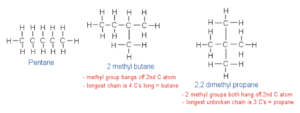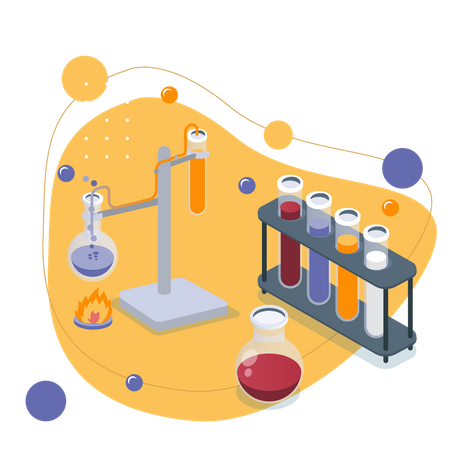Hydrocarbon Properties (GCSE Chemistry)
Uses of Hydrocarbons
- Hydrocarbons are made up of hydrogen and carbon. As previously mentioned, the only molecules contained within a hydrocarbon are hydrogen and carbon atoms.
- Hydrocarbon properties are determined by molecule size. The properties of hydrocarbons can be influenced by the length of the carbon chain. The three major properties that are affected are the boiling point, viscosity and flammability.
- A homologous series is a family of hydrocarbons. In a homologous series, the members of the family will share the same chemical properties of hydrocarbon due to having the same functional group. This means they share the same general formula.
Increasing Molecular Size of Hydrocarbons
- The boiling point increases with increasing molecular size. As the length of the carbon chain increases, the higher the boiling point will be. Longer chain hydrocarbons are less volatile, so they do not evaporate as easily.
- The viscosity increases with increasing molecular size. As the length of the carbon chain increases, the more viscous the hydrocarbon will be. A shorter hydrocarbon chain will be more ‘runny’ than a longer hydrocarbon chain.
- The flammability decreases with increasing molecular size. As the length of the carbon chain increases, the less flammable the hydrocarbon will be. Longer chain hydrocarbons are more difficult to ignite as compared to shorter chain hydrocarbons.
- Explaining the reasons for the trends in properties. Larger hydrocarbon molecules have more weak intermolecular forces compared to shorter hydrocarbon chains. Therefore larger chains will:
- Require more energy to separate the molecules so have higher boiling points.
- Have stronger forces which attract them together, so they are more viscous.
- Have higher boiling points so they are harder to evaporate and react with oxygen.
Isomers
Two compounds which have the same molecular formula, but different structural formula are called isomers.
For example, here the molecular formula is C5H12. However, the structural formula can change by adjusting the length of the carbon chain, to form different compounds including pentane, 2-methylbutane and 2,2-dimethylpropane.

FAQs
→How does the length of a hydrocarbon affect its properties?
A longer hydrocarbon has a higher boiling point and are harder to evaporate and react with oxygen. The longer the hydrocarbon chain, the more viscous it becomes. Longer hydrocarbon chains are less flammable.
Hydrocarbons are typically used in all major types of fossil fuels, including coal, oil, natural gas and biofuels. They are the molecules used for storing energy in the fuels. Hydrocarbons are also used in production, including the process of manufacturing plastics.
A hydrocarbon is a chemical compound made up of only hydrogen and carbon atoms.
The different types of hydrocarbons include alkanes, alkenes, and alkynes.
An alkane is a type of hydrocarbon that only contains single bonds between its carbon atoms.
An alkyne is a type of hydrocarbon that contains at least one triple bond between its carbon atoms.
Some physical properties of hydrocarbons include boiling point, density, and viscosity.
The number of carbon atoms in a hydrocarbon affects its boiling point because as the number of carbon atoms in a hydrocarbon increases, its molecular weight and size also increase, leading to an increase in boiling point.
The relationship between the number of carbon atoms and the density of a hydrocarbon is that as the number of carbon atoms in a hydrocarbon increases, its density also increases.
The environmental impacts of using hydrocarbons include air pollution from the release of carbon monoxide and other pollutants, the contribution to global warming from the release of carbon dioxide, and oil spills and other forms of environmental contamination.






Still got a question? Leave a comment
Leave a comment